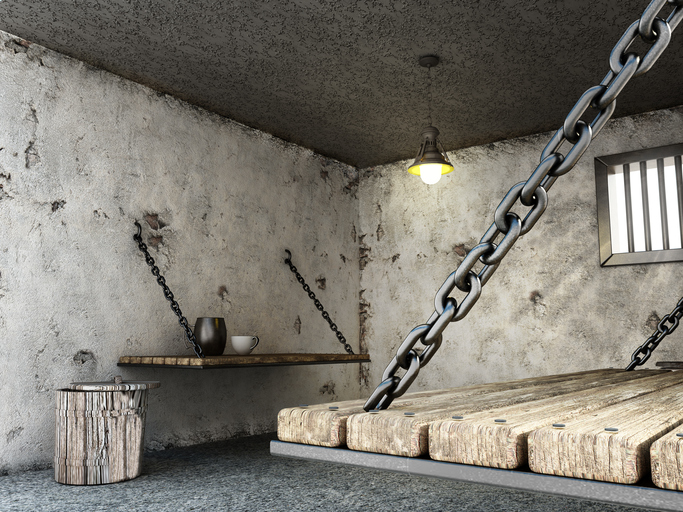SOPA v Other debt recovery methods
The construction industry has been one of the most volatile in
recent years. With the rise of interest rates and costs of
materials negatively impacting the building industry this has led
to many insolvencies.
Where subcontractors go unpaid for work performed, not only is
this destructive to that subcontractor’s cash flow, it often
also delays the eventual completion of the build. It is essential
if you are involved in the construction industry that you
understand the legal mechanisms available to you for debt
recovery.
Security of payment legislation (SOPA) operates
throughout Australia, with differences between each of the states.
Fundamentally, the legislation exists to address the disparity
between the bargaining power of a builder or developer and the
subcontractors engaged in building works who wind up in a dispute
about payment.
While this legislation is not uniform between the states, there
are common aspects amongst the different jurisdictions, so you
should obtain legal advice to ensure you are properly complying
with the relevant legislation, as failure to comply with technical
aspects of the legislation may be fatal.
As well as the Security of Payment scheme, traditional debt
recovery methods are still available, but may not be preferable
depending on the circumstances. The following clarifies the options
available to reclaim unpaid invoices. While, in this article
reference is made to the legislation applicable across Victoria,
NSW & Queensland, PCL Lawyers is adept at recouping payments in
all jurisdictions through the different debt recovery
processes.
Navigating the legal landscape of debt recovery
When faced with a non-paying builder, two primary legal pathways
exist:
- Building and Construction Security of Payment Act 2002
(SOPA):
SOPA offers a reasonably fast-tracked payment security
mechanism specifically designed for the construction industry. It
allows subcontractors and suppliers to claim payment directly from
the head contractor or principal (the builder) for progress
payments and for completed work. - Standard debt recovery processes:
alternatively, you may pursue payment through traditional legal
avenues, such as issuing a demand letter, making a statutory
demand, commencing legal action in courts, and/or resolving the
dispute by alternative dispute resolution.
Adjudication of Construction Payment Disputes
One advantage that securing payment using the SOPA scheme is the
availability of adjudication, an accelerated route to resolving
payment disputes which may assist in getting subcontractors paid
and keeps a project moving. Where litigation can be lengthy, costly
and uncertain, adjudication is specifically designed for resolving
construction payment disputes and stands out for its efficiency and
its construction specific knowledge and focus.
Adjudication boasts a significantly faster resolution time
compared to court proceedings, typically concluding within around
30 business days. This swiftness is aimed to minimises disruptions
to cash flow, helps projects stay on track and alleviates financial
burdens. Furthermore, adjudication fees, while present, are
generally much lower than court costs, making it a more
budget-friendly option for both parties.
Another key advantage lies in the expertise of adjudicators.
These construction industry professionals typically possess a deep
understanding of the technical and legal nuances of the field,
ensuring a thorough assessment of your claim and a well-informed
outcome. Their familiarity with industry practices and standards
allows them to quickly grasp the complexities of your dispute,
leading to a more efficient and accurate resolution.
The process itself is streamlined and accessible compared to
formal court proceedings. Following a claim initiation detailing
the amount owed and the basis for your claim, the contractor has a
limited timeframe to respond. If the claim is disputed, you can
formally request an adjudication determination (within specific
timeframes), leading to a focused hearing where both parties
present their arguments and evidence. The adjudicator then issues a
binding determination on the disputed amount, to which the parties
must adhere. If necessary, this determination can then be enforced
through various methods, ensuring you receive your due
compensation, and the dispute is definitively settled.
For sophisticated clients in the construction industry,
adjudication offers several additional benefits. Its less
adversarial nature compared to litigation can help maintain
valuable business relationships within the community, while the
swift resolution protects cash flow and prevents project
delays.
However, navigating the intricacies of adjudication requires
careful consideration of key points. Ensure your claim meets the
relevant thresholds outlined in SOPA, such as contract value and
timeframes. Adhere to the strict timeframes for filing claims and
applications, as the deadlines contained in the SOPA legislation
are set in stone and no extensions can be granted, even if the
parties mutually agree to. Understanding the nuances of
adjudication and utilising it properly allows you to leverage its
strengths and effectively resolve construction payment
disputes.
Key Differences between SOPA and Standard Debt Recovery:
- Applicability:
- SOPA: applies broadly to most commercial
construction contracts, and some residential building work. It
assists to secures payment due to subcontractors and suppliers
providing goods or services directly related to the project and
building works. - Standard Debt Recovery: Applies to all types
of debts, regardless of the industry or contract value.
- SOPA: applies broadly to most commercial
- Time Limits:
- SOPA: Strict timeframes apply for issuing
payment claims and making adjudication applications. - Standard Debt Recovery: time limits will vary
depending on the chosen debt recovery pathway, and the reasons that
money is owed. The timelines for commencing traditional recovery
action are much longer for standard debt recovery (years, as
opposed to days or months as in SOPA).
- SOPA: Strict timeframes apply for issuing
- Costs:
- SOPA: adjudication fees are typically paid at
the conclusion of the adjudication by the unsuccessful party, which
may be either the applicant or the respondent (builder/ principal
or subcontractor). In some instances where there is a split
outcome, the adjudicator may seek that the fees are paid by both
parties and will allocate an amount each is responsible for. - Standard Debt Recovery: costs can vary
significantly depending on the chosen legal pathway. Court action
can be expensive, and while you may receive a costs order if you
are ultimately successful in litigation, you will likely only
receive a percentage of those costs in an order.
- SOPA: adjudication fees are typically paid at
- Speed of Resolution:
- SOPA: Aims to resolve disputes quickly and
efficiently. Adjudications can be completed within around 30
business days, offering a faster alternative to court
proceedings. - Standard Debt Recovery: Depending on the
chosen pathway, resolution times can vary significantly. Court
proceedings can be lengthy and complex, while alternative dispute
resolution can occur at any time.
- SOPA: Aims to resolve disputes quickly and
- Enforcement:
- SOPA: Adjudication determinations are legally
binding and enforceable, whilst it is not often the case that an
adjudication award is not paid, the successful party can also have
it converted to a judgement debt in the relevant Court. - Standard Debt Recovery: Enforcement methods
vary depending on the chosen pathway. Court judgments can be
enforced through various means, such as writs of execution,
garnishee orders, or bankruptcy proceedings.
- SOPA: Adjudication determinations are legally
When is SOPA the Right Choice?
If you’re owed money by a builder for construction work,
SOPA offers several advantages:
- fast-track resolution: avoid lengthy court
proceedings and obtain a quick decision on your claim. - cost-effective: adjudication fees are
significantly lower than court costs. - expert decision-makers: adjudications are
conducted by construction industry experts, ensuring a fair and
informed outcome. - strong enforcement mechanisms: adjudication
determinations are legally binding and enforceable.
When are Standard Debt Recovery Processes More Suitable?
In some situations, SOPA may not be the best option. Standard
debt recovery may be more appropriate where:
- there are debts owed by the builder outside the scope of the
contract. - claims for amounts which cannot be included in a SOPA payment
claim (i.e. costs or damages). - complex legal issues requiring court determination.
- when seeking additional remedies beyond payment, such as
damages or injunctive relief.
Navigating the right path to get paid sooner.
Choosing the right path to recover your unpaid debts requires
careful consideration of your specific circumstances. Consulting
with a qualified construction lawyer who specialises in SOPA
and debt recovery in the building industry can provide invaluable
guidance.
Our team at PCL Lawyers can assess the merits of your claim,
advise you on the most effective course of action, and represent
you throughout the legal process. If you are in the building and
construction industry it is essential business knowledge that can
help you recover unpaid debts in the most cost-effective
manner.
Getting industry relevant professional legal advice and
representation from our team will also lead to the fastest and most
cost-effective resolution to your matter.
The content of this article is intended to provide a general
guide to the subject matter. Specialist advice should be sought
about your specific circumstances.
#recover #debt #SOPA #debt #recovery #Construction #Planning










